This article contains spoilers for The Flash in its discussion of the wasted narrative potential of Supergirl and her actor, Sasha Calle.
Sasha Calle’s Supergirl is the best thing about The Flash, and one of the worst things about the movie is its failure to realize this.
One of the great contradictions at the heart of The Flash is that it is in many ways a movie about the character of Superman. After all, the movie’s big third-act set piece is a direct invocation of Man of Steel, with General Zod (Michael Shannon) and his Kryptonian army arriving on Earth to wreak havoc. The climax of the movie features creepy cavalcade computer-generated cameos from a variety of Supermen: Christopher Reeve, George Reeves, even Nicolas Cage himself.
It is possible to construct a reading of The Flash as an answer to the existential question articulated by Charlie Rose in Batman v Superman: “Must there be a Superman?” The climax of The Flash suggests that there must. When Barry Allen’s (Ezra Miller) meddling with the timestream creates a world where Kal-El (Henry Cavill) never makes it to Earth, there is seemingly no way to stop Zod’s invasion. It seems that only Superman could have saved the world in that moment.
The contradiction arises between the argument that The Flash makes for the necessity of a Superman archetype and the reality of how it treats the actors to play the role. This is obvious with Henry Cavill, an actor who has been let go by the company, twice. Cavill is one of only two stars of Justice League not to appear in The Flash. The other is Ray Fisher, who has openly discussed the abuse that he received during reshoots overseen by Joss Whedon.
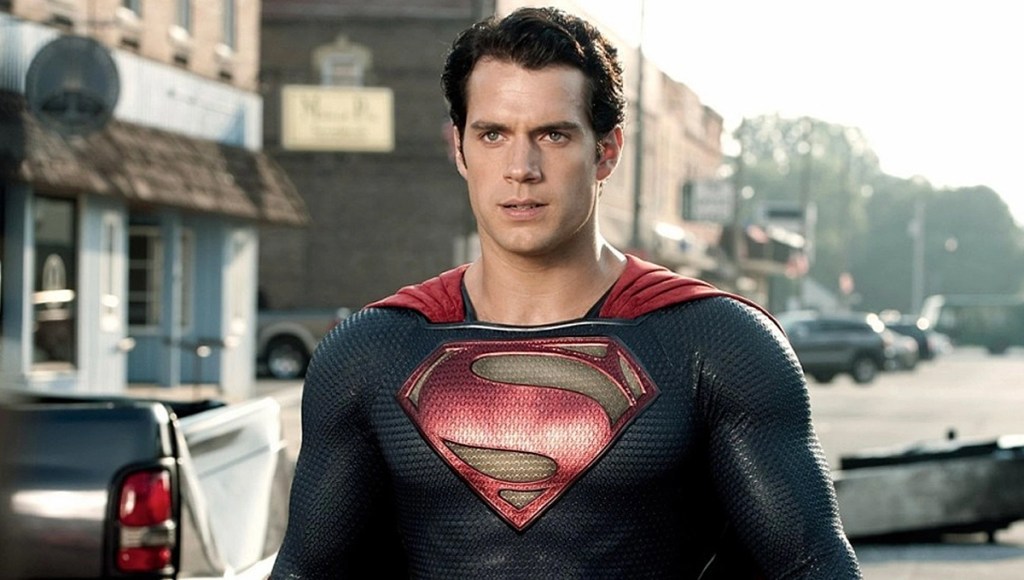
The Flash makes room for appearances from Ben Affleck as Batman, Gal Gadot as Wonder Woman, and Jason Momoa as Aquaman. However, the only real acknowledgement of Cavill is a monstrous computer-generated likeness within the Speed Force. It’s an even uglier rendering than the ghoulish reanimations of Reeves and Reeve. As much as The Flash is a story about how the world needs Superman, the subtext of the film seems to be reminding the audience that Cavill is still fired.
The bigger problem arises in relation to the version of the Super-character who actually appears in the alternate timeline. In a world where Zod intercepted Kal-El’s pod before it could reach Earth, the first Kryptonian to arrive on Earth is Kara Zor-El. Kara is Kal-El’s elder cousin. She is an established character from the comics, most often appearing as Supergirl or her alternate universe doppelganger Power Girl. While Kal-El arrived as a baby, Kara arrived at an age where she could remember Krypton.
The Flash is largely based on the 2011 event comic Flashpoint, written by Geoff Johns and illustrated by Andy Kubert. This is particularly obvious in terms of Kara’s arc, which is largely lifted from the tie-in comic Project: Superman, written by Scott Snyder and Lowell Francis and illustrated by Gene Ha. In the world of Flashpoint, Kal-El’s ship doesn’t land in rural Kansas but smashes into a busy Metropolis. He is captured by the American military, locked in a vault, and subject to inhumane experimentation.
The Flash lifts a lot of this backstory for its version of Supergirl. When Zod arrives on Earth, Barry decides that he needs to find Superman to stop the invasion. With the help of an alternate version of Batman (Michael Keaton), Barry discovers that an alien ship has been hidden away at a remote “Siberian black site.” The heroes break in to discover that the ship’s survivor has been tortured for decades. However, it isn’t Kal-El. It is Kara.
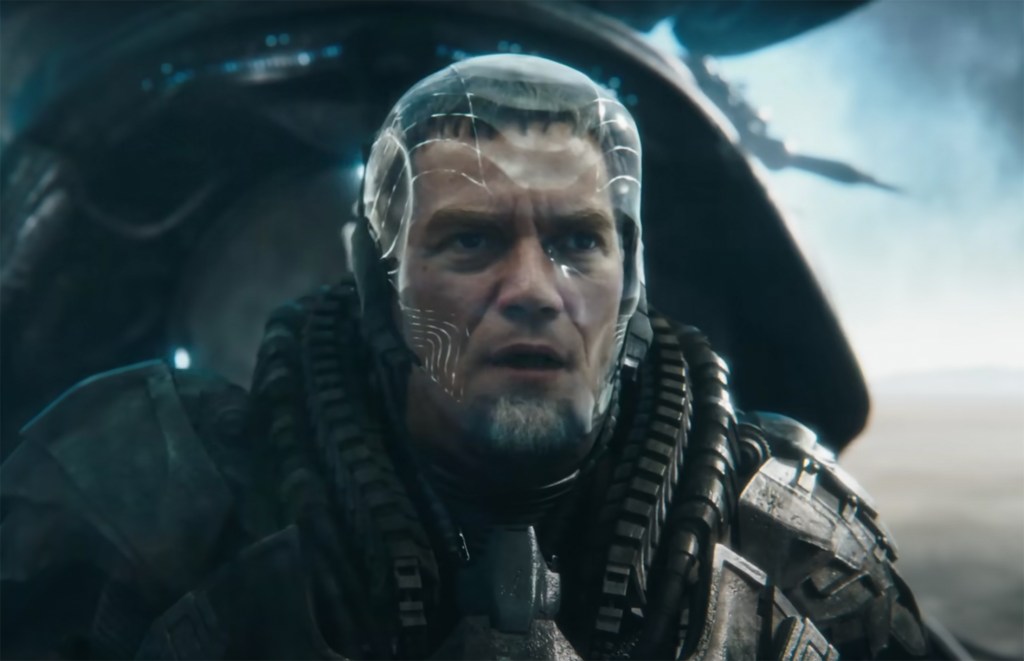
This is the single best idea that The Flash has, because it manages to do something that has troubled DC and Warner Bros. for decades: It makes its Superman archetype relevant to the modern world in a way that meaningfully acknowledges the character’s history and context. Sasha Calle’s Supergirl is a compelling and exciting take on the character who essentially codified the modern archetype of the superhero, one true to the roots of the character.
The Flash understands the fundamental truth of Superman: The character is an immigrant. Superman is a refugee from a dying world who comes to America and reinvents himself as something new. The character is the embodiment of the American Dream, an expression of the romantic idea of the United States as what John F. Kennedy described as “a nation of immigrants.” It is the essence of the character. As much as Superman is an embodiment of American ideals, he is forever an outsider.
Superman was created by Jerry Siegel and Joe Shuster, both of whom came from immigrant families. The character’s early appearances established the hero within the zeitgeist by embracing a fiery social conscience, targeting war profiteers, predatory businessmen, fascist leaders, and wife beaters. Some of the best recent comic book runs on the character, such as Grant Morrison’s jeans-and-T-shirt take followed by writer Greg Pak, have tried to bring the superhero back to that early approach.
DC has often struggled with the question of how to make Superman resonate with modern audiences the way that he spoke to readers during the Great Depression and in the lead-up to the Second World War. There are points where this approach verges on self-parody, with reports of editorial arguments over depictions of the hero rescuing kittens from trees or J. Michael Straczynski’s decision to tell a year-long story about Superman literally walking across America.
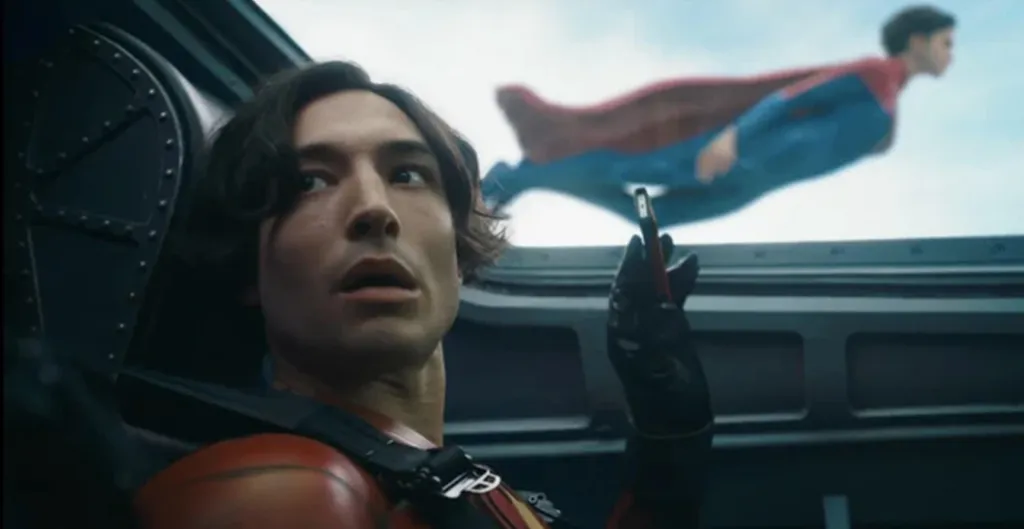
The Flash hits on a killer hook. What would that immigrant story look like today? If a refugee fleeing the end of their world arrived in 2023, would they be embraced with open arms? Or would they be locked in a cage, their civil rights stripped away, separated from their families, and treated as less than human? Would the world react enthusiastically to a stranger who came looking for a place to call home, or would they subject that outsider to the worst treatment imaginable?
The key to modernizing Superman has never been about updating the character; the archetype stands for ideals that resonate in any time period. It is about understanding how the world has moved around him. Zack Snyder’s Man of Steel, for all its clumsiness, is in many ways about exploring how the Kent family would be fundamentally different people depending on when Kal-El arrived; the progressive Kansas of the early 20th century has given way to a culture with a very different outlook.
In The Flash, Supergirl is subject to all the modern paranoia over immigration. She is brutalized and victimized by the state because she comes from somewhere else. The casting of Calle, an actor of Colombian descent, feels like a deliberate attempt to render the subtext as text, to remind the audience that much of modern immigration paranoia exists specifically in relation to Central and South America. Kara’s story not only remains true to the heart of the Superman story, but foregrounds it.
This serves to make Supergirl an even more heroic character. After all, as she tells Barry on the roof of Wayne Manor when he appeals for her help to fight Zod, this world has done nothing to deserve her support. It would be quite understandable for Kara to abandon Earth, to let it face this struggle alone. However, she ultimately decides to do the right thing. After some initial hesitation, she sides with Barry and Batman against Zod, to preserve this planet that has given her nothing in return.
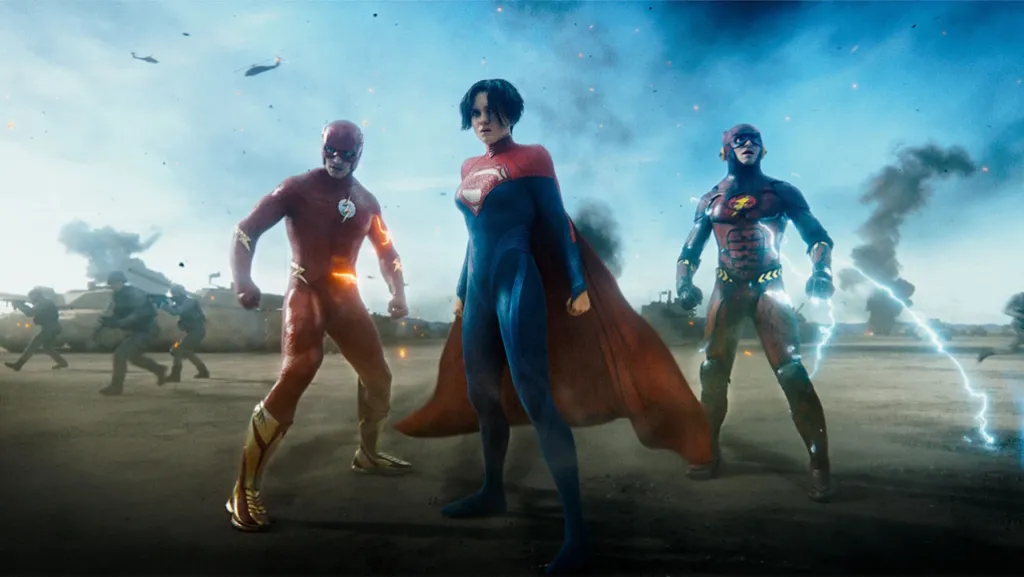
Unfortunately, like everything else in The Flash, the movie ultimately bungles this premise and potential. The film is much less interested in Calle’s performance as Supergirl than it is in the return of Keaton as Batman. It is great to see Keaton’s version of the character getting some love, but he doesn’t really have an arc or a story. He is mainly just a reminder of the movies that the audience watched as a child. He has no real motivation and often seems to be helping Barry out of boredom rather than any true urgency.
As such, Kara’s plot is rushed. It is not given room to breathe amid the flurry of fan service. Her arc consists of her telling Barry that Earth is on its own, flying away to meet Zod, seeing Zod murder a bunch of soldiers, and then deciding to stay and fight. It’s not especially compelling, and it feels like something that was heavily pared down during the various revisions to the film during its troubled development, production, and postproduction process. It is not a character; it’s CliffsNotes. It’s a waste of the concept.
It’s also a waste of a charismatic young star. With Ezra Miller dogged by scandal and most of the discussion of Keaton featuring others talking around him rather than to him, Calle has been left to front a lot of the publicity for The Flash. She’s been the performer doing interviews, talking about Henry Cavill, and talking about her love of her action figure. She seems genuinely delighted to be doing this, an excellent ambassador for the film and studio. She deserves much better than what the film gives her.
The Flash also suffers from decisions that temper the social commentary. In Project: Superman, Kal-El crashes in Metropolis and is taken into the custody of the United States military. The Flash seems worried that it might be too overt to have Kara held by the American government. Instead, the brutality that she suffers is inflicted by the Russians in Siberia. Russians make convenient villains right now, but it somewhat undermines the most interesting thing about the character.
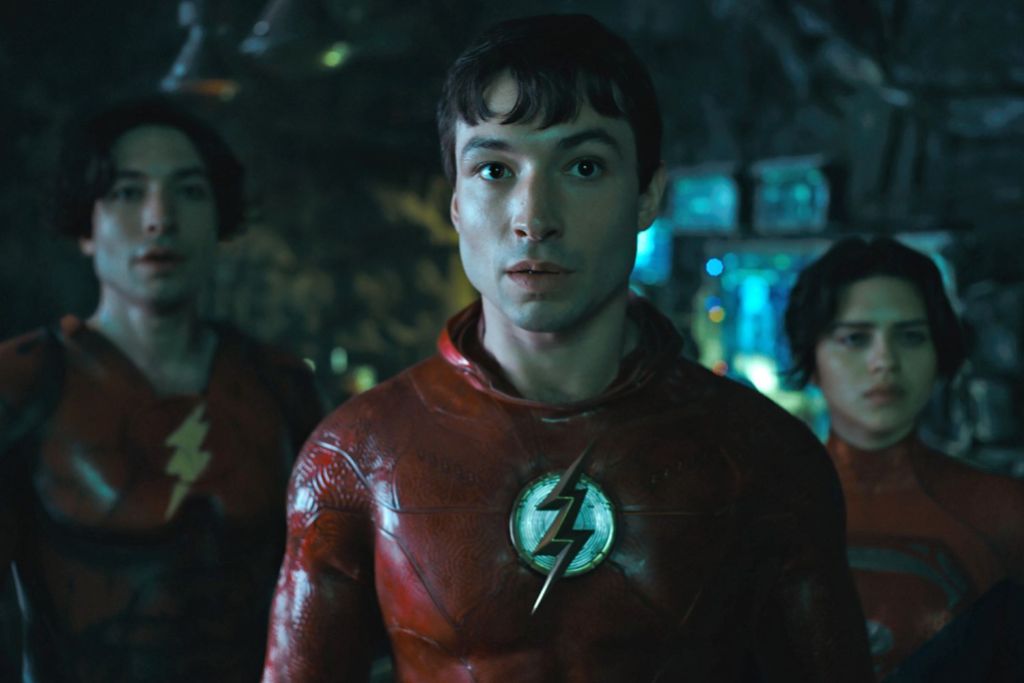
It also doesn’t help that the entire premise of the movie paints Kara as a fundamentally broken and inferior copy of Superman. Kara dies repeatedly in her confrontation with Zod, and the movie ends with Barry deciding to erase her world and her history from existence. In a movie that is ostensibly about learning to live with one’s flaws and imperfections, this feels like it misses the point. The climax of The Flash argues that its most interesting character is a mistake that never should have existed.
This is particularly frustrating given that there are photos of an alternate version of the movie’s final scene that feature Kara reuniting with Barry in the restored timeline. Instead, it now seems likely that James Gunn will recast the role for his planned adaptation of Tom King and Bilquis Evely’s Supergirl: Woman of Tomorrow.
Calle deserves better, and so does her version of Supergirl. The Flash figures out a timely and thoughtful take on the Superman archetype, and it just throws it out, out and away.

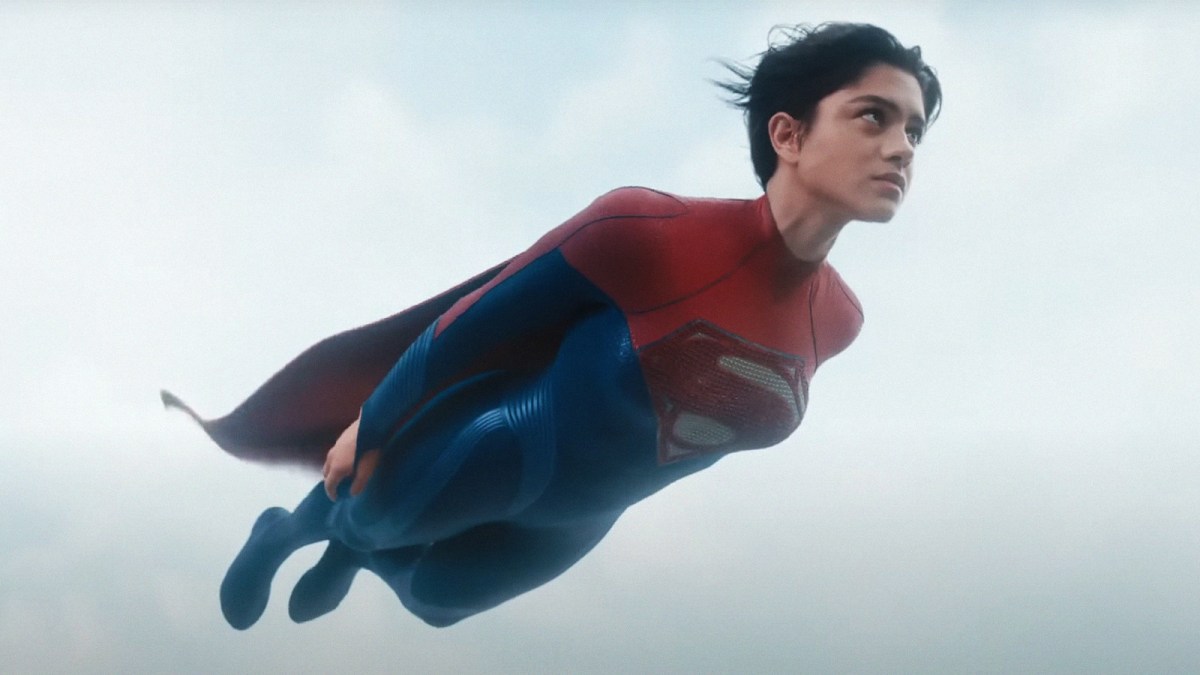




Published: Jun 18, 2023 11:00 am